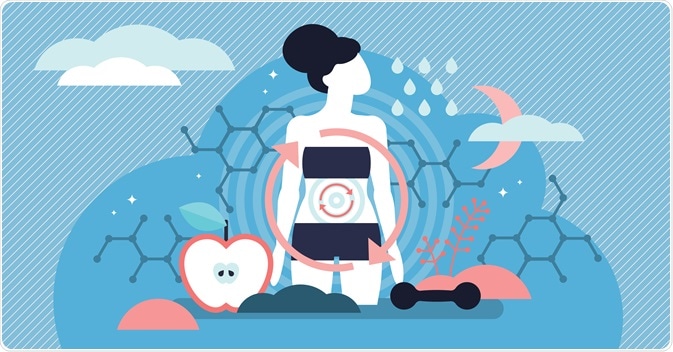
You’ve probably heard about the word “metabolism”, but what exactly is your metabolism? How does your metabolism work? Is it slow? Does my age affect metabolism? All good questions! Let’s do a quick dive in and understand this topic a bit better.
To start off, your metabolism is linked to your weight, but to answer one of the questions above, it’s rarely involved with weight gain. Your metabolism does affect your bodies calorie intake, however, it all comes down to how much you eat and drink versus how much exercise you’re getting in. OKAY, so how does the metabolism ACTUALLY work?
How Metabolism Works
Metabolism is the process by which your body converts what you eat and drink into energy. During this complex process, calories in food and beverages are combined with oxygen to release the energy your body needs to function. Even when you’re resting, your body needs energy for all its “hidden” functions, such as breathing, circulating blood, adjusting hormone levels, and growing and repairing cells. The number of calories your body uses to carry out these basic functions is known as your basal metabolic rate — what you might call metabolism.
When Metabolism and Epigenetics Converge
SWEET, so we know now how my metabolism works, but then what about my age? The fact that I’m a girl/boy? My body size?? All good questions! First off, if you’re a bigger person or have more muscle, you burn more calories, even at rest. Secondly, men usually have less body fat and more muscle than do women of the same age and weight, which means men burn more calories (seems unfair, right?!). Thirdly, as you get older, the amount of muscle tends to decrease and fat accounts for more of your weight, slowing down calorie burning.
It may be tempting to blame your metabolism for weight gain. But because metabolism is a natural process, your body has many mechanisms that regulate it to meet your individual needs. Only in rare cases do you get excessive weight gain from a medical problem that slows metabolism, such as Cushing’s syndrome or having an underactive thyroid gland (hypothyroidism).
How Metabolism Helps in Weight Loss
Unfortunately, weight gain is a complicated process. It’s likely a combination of genetic makeup, hormonal controls, diet composition and the impact of the environment on your lifestyle, including sleep, physical activity and stress. All of these factors result in an imbalance in the energy equation. You gain weight when you eat more calories than you burn — or burn fewer calories than you eat.
While it is true that some people seem to be able to lose weight more quickly and more easily than others, everyone loses weight when they burn more calories than they consume. To lose weight, you need to create an energy deficit by eating fewer calories or increasing the number of calories you burn through physical activity or both.
I hope this blog helped clear some things up?
Thanks for reading and get in touch if you have any questions 🙂
ShapeInMind
Leave a comment